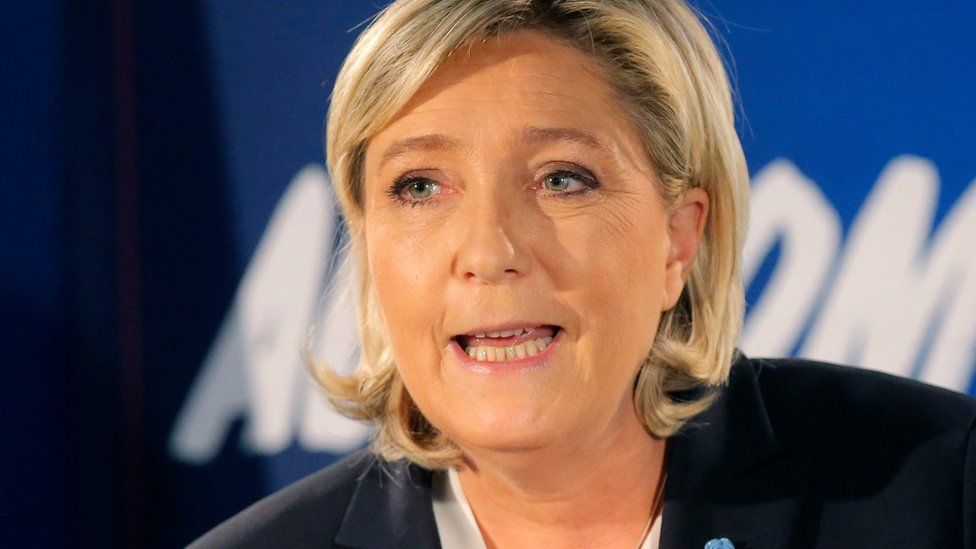FN leader Le Pen calls for France to leave euro but stay linked
- Published

France's far-right leader Marine Le Pen has outlined plans for France to leave the euro should she win this year's presidential election.
But she proposed Europe could return to a parallel Ecu-like common unit in a bid to soften the economic impact.
Meanwhile, a rival for the left-wing nomination, Arnaud Montebourg, said he would impose a super-tax on banks to raise €5bn (£4.3bn; $5.2bn) if elected.
French voters will elect their new president in April and May.
Polls at present suggest that conservative candidate Francois Fillon, who decisively won the centre-right nomination in November's primary vote, will face National Front (FN) leader Ms Le Pen in the second round of voting.
Ms Le Pen has vowed to pull France out of the euro for years, but in remarks to Reuters news agency she broadened her vision, suggesting that Europe could return to a basket of recognised national currencies, linked through a common currency system like the Ecu, used before the introduction of the single currency in 1999.
Under this model, France could reintroduce a currency such as the franc, while maintaining economic relationships with the eurozone.
Le Pen targets middle ground - Lucy Williamson, BBC News, Paris
Marine Le Pen's vision is designed to expand the party's appeal and reassure those voters who are nervy about the National Front's hard-line policies towards the EU. Asked in an interview earlier this week whether she would pull France out of the Brussels bloc, Ms Le Pen said: "No, I think we need to renegotiate with the EU to bring back sovereignty to France, backed by a referendum."
Support for the populist National Front (FN) is split between those who want a more protectionist economy and those who want a more conservative society. The party has presented control of France's borders as key to both.
The FN has never won more than 30% of the vote in previous elections. Ms Le Pen's challenge now, analysts say, is to attract more voters from mainstream parties whilst holding on to her anti-establishment image, and her core support.
In an earlier New Year's address to the media, Ms Le Pen praised Ford Motors' decision to cancel investment in a Mexico plant as a triumph for protectionist policies and President-elect Donald Trump.
Ironically, the move was also cheered by Mr Montebourg, who joked at a news conference on Wednesday: "I see that Donald Trump used the Montebourg method!"
The former industry minister is one of seven candidates vying for the Socialist nomination in a primary at the end of January.
On Tuesday, fellow contender and former Prime Minister Valls appealed to the traditional left, pledging to "reject the vast purge that Francois Fillon is preparing for us, a drastic reduction in the number of public sector workers, and so fewer public services".
Mr Fillon says he will scrap 500,000 public sector jobs in a bid to give France an economic boost.
- Published24 April 2017
- Published29 December 2016
- Published1 December 2016